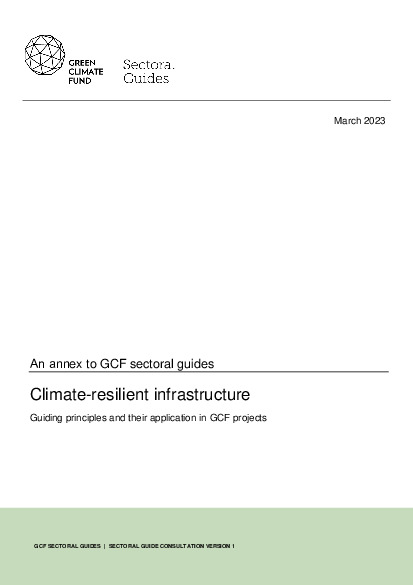Annex to GCF sectoral guides: Climate-resilient infrastructure
In an era marked by rapid climate change, our focus on infrastructure requires a paradigm shift. Infrastructure systems globally, from transportation to water supply, from urban planning to energy grids, must not only serve their functional purposes but must also be resilient against the uncertainties of climate change. This resilience ensures the security, health, and prosperity of communities worldwide.
GCF has identified multiple pioneering pathways to drive impactful climate resilience projects tailored to the unique needs of regions and individual countries: Holistic urban planning and design for cities and urban areas that are not only functional and aesthetic but can also withstand the stresses of changing climate patterns; Developing transportation networks that remain operational and safe during extreme weather events and other climate-related challenges; Ensuring that communities have consistent and safe access to water and sanitation services, even during droughts, floods, or other climate-induced disruptions; and enabling the promotion and utilization of Nature-based Solutions (NbS) whenever possible.
The Climate Resilient Infrastructure (CRI) Annex serves to compliment all sector guides, giving a CRI outline for any sector in order to shape infrastructure components based on industry standards and in a manner enabling the climate resilience of structures. Applying the proposed Key Principles will enable project promoters to base projects on the infrastructure paradigm from the point of conceptualisation.
